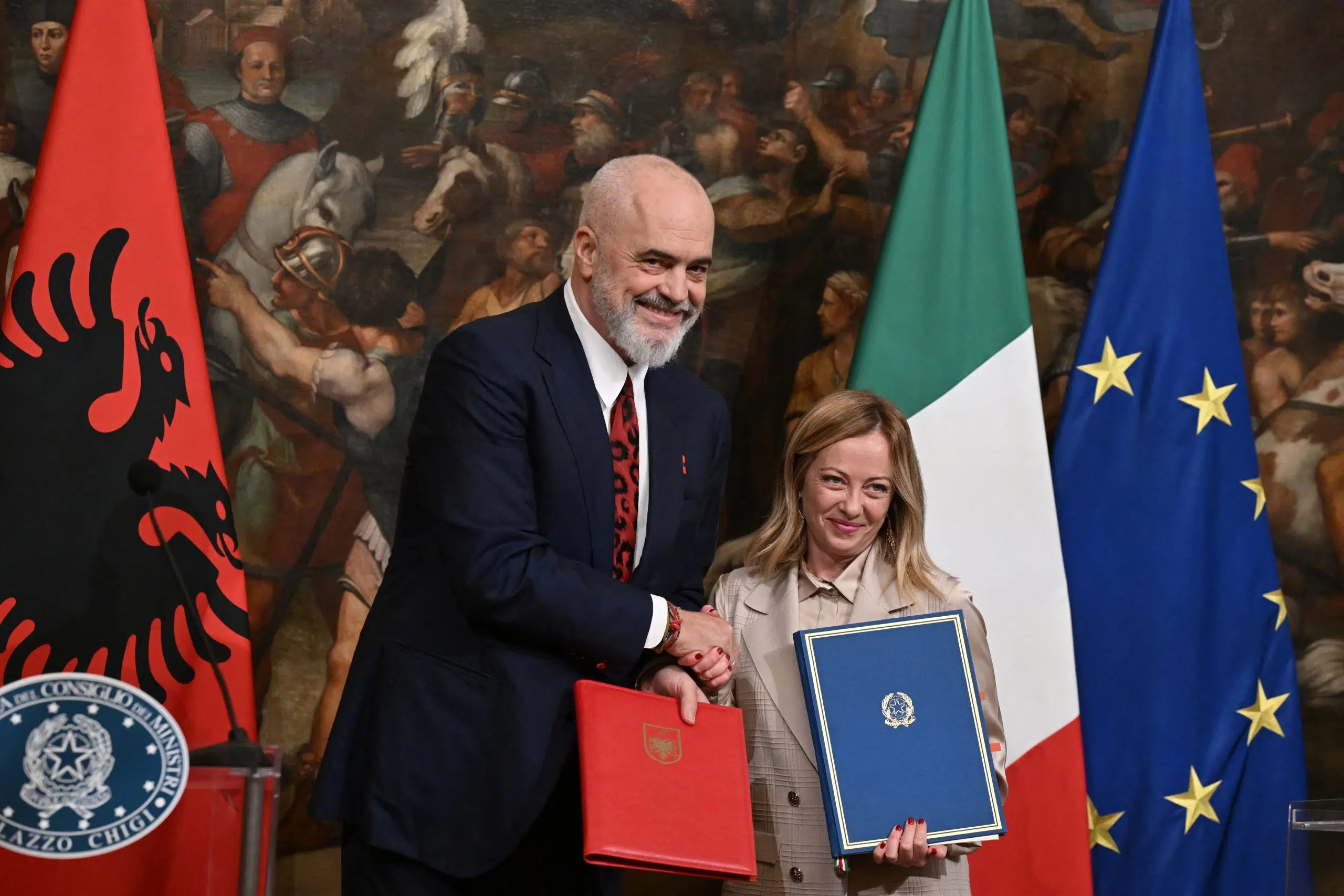Brussels – Three months of initial monitoring, to eventually report to Rome what is wrong with Italian centers for migrants on Albanian soil envisaged by last November’s agreement between Giorgia Meloni and Edi Rama. The UN Refugee Agency (UNHCR) has been formally invited by the Italian Interior Ministry to oversee the implementation of the Protocol and to guarantee “the rights and dignity of those subject to it.”
Even though the presence of UNHCR staff in hotspots for asylum applications and detain migrants is not to be taken for granted, it is an established practice, in line with the UN agency’s mandate to oversee the application of the 1951 Refugee Convention and to provide protection to refugees.

UNHCR was not involved in the negotiations between Rome and Tirana to draft the Protocol. However, after a series of meetings in which the Italian government “provided additional information” on its implementation and “reiterated its strong desire that it be in line with international law and standards,” the Italian Interior Ministry included the UN agency to undertake a role of “monitoring and counseling” for an initial three months.
During this period, UNHCR “will seek to improve the protection of asylum seekers and refugees by identifying and reporting to the competent authorities any inconsistencies with international human rights and refugee law and good practice standards, and advocate for enhanced protection safeguards.” The protocol has raised many doubts and criticisms, and one key issue concerns the possible risk of outsourcing asylum obligations, contrary to international law. On paper, this is not the case because the two centers of Shengjin for disembarkation and identification procedures and Gjader for returns (CPR) will remain under Italian jurisdiction. However, it remains “a novelty,” and “there is a need to be there,” UNCHR sources confirm.
Before entering the centers, as early as the rescue operations, migrants undergo an initial screening. Subsequently, they are transferred to a hotspot ship at the port of Shengjin. UNHCR staff would monitor each of these steps. At the end of the three months, it would “make its recommendations available to the Italian government and other interested actors.” In the statement with which it announced its commitment, UNHCR emphasized that to ensure the independence of its monitoring function it will not receive any funds from Rome.
The opening of the first part of the Gjader return center has, for now, slipped to August 20, while Tirana is expected to hand over the keys of the one in Shengjin to Italy by September 1. However, also the UNHCR says there is still no definite date for the start of the assignment.
English version by the Translation Service of Withub





